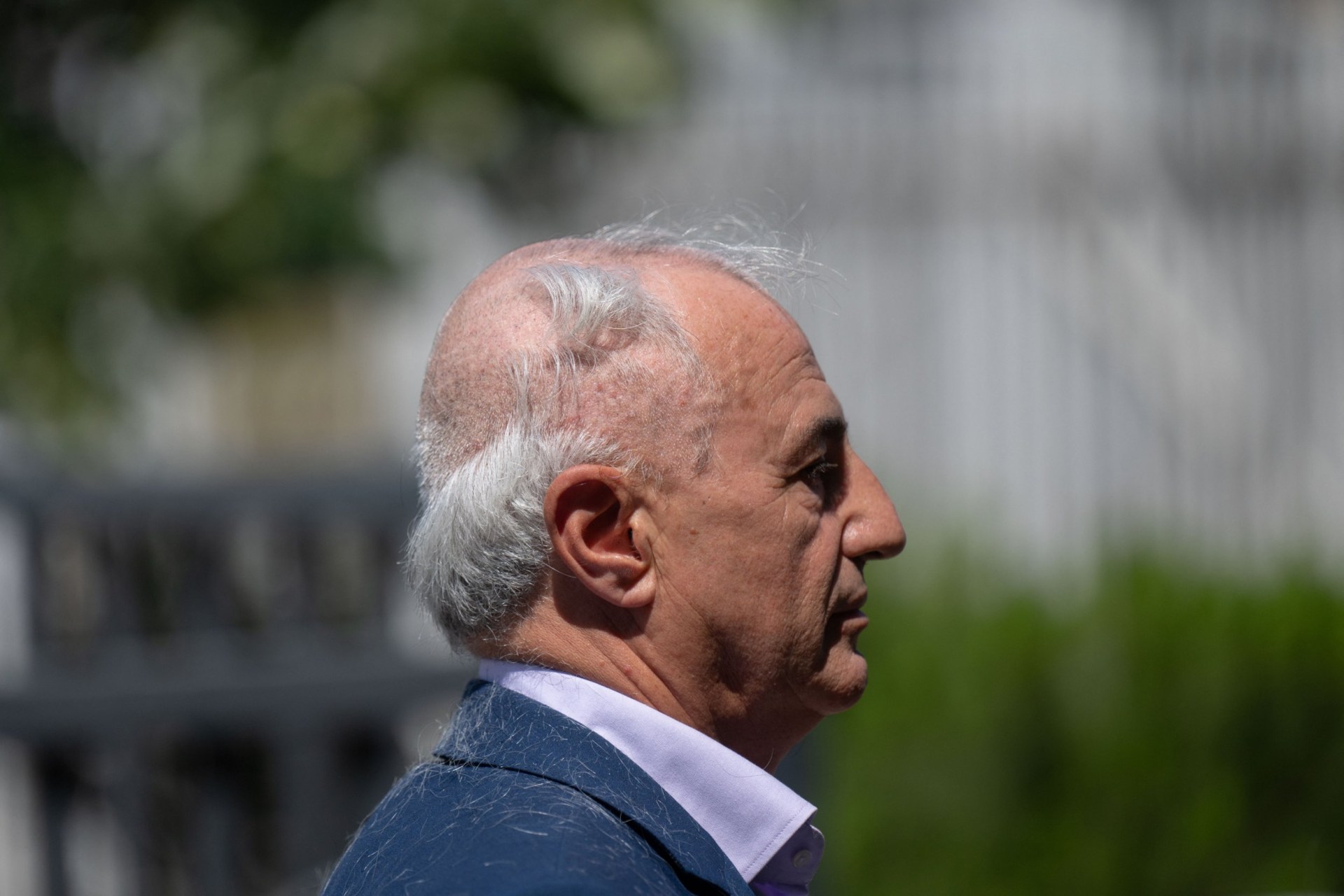
A Bold Protest in Kosovo
In a striking display of dissent, a lawyer named Arianit Koci took to the streets of Prishtina, Kosovo, to voice his frustration with the government’s failure to establish a new assembly for the fifty consecutive time. Standing before the Kosovo Assembly, Koci used a shaver to cut his white hair, symbolizing the growing concerns over the stability of Kosovo's statehood.
Koci described his actions as a symbolic gesture, highlighting the challenges faced by the nation. He expressed fears that both friends and enemies are beginning to doubt Kosovo's ability to sustain its own governance. While his protest was passionate, it also had a humorous side—Koci admitted he missed several patches of hair during the act, though he remained optimistic about regrowth.
The public reaction to Koci's protest was overwhelmingly positive. Many Kosovans praised his courage and individuality. One supporter remarked, “You are the clear conscience of the nation! Every action of yours fills me with hope, and gives me the message that this country has no end.” Another added, “Respect. Don’t mess with these fools.”
However, this act of defiance comes amid rising tensions in Kosovo, where political deadlock has persisted for months following the recent parliamentary elections. The stalemate is rooted in the fact that the party led by outgoing Prime Minister Albin Kurti, Vetevendosje, did not secure enough seats to install their chosen speaker. This has led to accusations from other MPs that Kurti has been undermining the constitutional order by failing to form an assembly 162 days after the elections.
MP Vlora Çitaku criticized Kurti's actions, stating, “162 days is not a lot for Albin Kurti because for him, this time is part of a plan. For the overthrow of the constitutional order, for the delegitimisation of democracy and institutions and for the undoing of the very DNA of our society. You will not succeed because this is not just a political crisis, it is a moral crisis, and we must stop it.”
Koci has previously made headlines with other forms of protest, including bringing donkeys outside the parliament last month to highlight the ongoing deadlock. These unconventional methods reflect the frustration of many citizens who feel the government is not addressing their concerns effectively.
Kosovo has a history of dramatic political moments. In 2023, chaos erupted when an opposition party member sprayed water at PM Kurti, leading to a heated confrontation that involved police. These incidents underscore the volatile nature of the political landscape in the region.
Kosovo declared independence from Serbia in 2008, but the country's sovereignty continues to face threats from Serbian nationalists. The conflict between Kosovo and Serbia in the late 1990s resulted in the tragic loss of thousands of ethnic Albanian lives, with many describing the events as a genocide. NATO's intervention through air strikes in March 1999 ultimately led to the withdrawal of Serbian forces from Kosovo.
By the end of the conflict, nearly 90% of Kosovo’s Albanian population had been displaced, with many fleeing to neighboring countries like Albania and Macedonia. The legacy of this conflict continues to shape the political and social dynamics of the region.
As the situation in Kosovo remains tense, the actions of individuals like Koci serve as a reminder of the ongoing struggles faced by the nation. Their protests, whether symbolic or unconventional, highlight the need for dialogue and resolution in a complex political environment.
